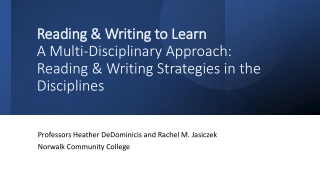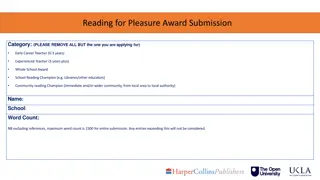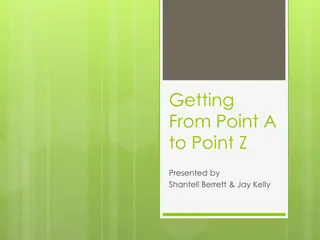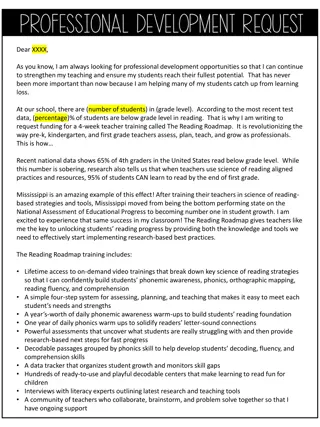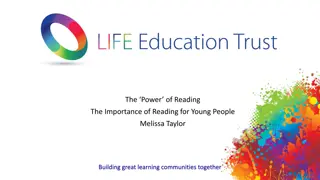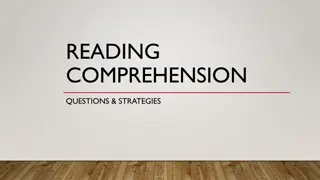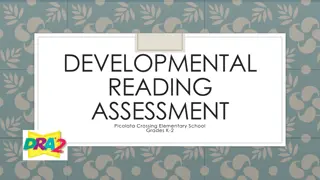
Risk-Taking and Motivation in Unit 6A
Explore the nature of risk, motivation, and overcoming challenges in Unit 6A, including why some individuals are drawn to risk-taking behavior and how dopamine influences motivation. Discover the biological basis for taking risks and strategies for minimizing risks in different scenarios.
Download Presentation

Please find below an Image/Link to download the presentation.
The content on the website is provided AS IS for your information and personal use only. It may not be sold, licensed, or shared on other websites without obtaining consent from the author. If you encounter any issues during the download, it is possible that the publisher has removed the file from their server.
You are allowed to download the files provided on this website for personal or commercial use, subject to the condition that they are used lawfully. All files are the property of their respective owners.
The content on the website is provided AS IS for your information and personal use only. It may not be sold, licensed, or shared on other websites without obtaining consent from the author.
E N D
Presentation Transcript
RE 3 Unit 6A The Nature of Risk Joyce Lee and Cynthia Yu
p. 89 1. Why is rock climbing featured in the opening photo for this unit? It requires strength, endurance, and technical skill, but it also requires a positive mental attitude that the challenges can be overcome. 2. What kind of risk do you take every day? How about those only on occasions? The possibility of failing something, feeling disappointed at the results of things, trying something new, taking action, the possibility of being hurt. In everyday life, driving, preparing food, using stairways, non-routine tasks, etc.. Such as rock climbing or bungee jumping 3. Are you likely to take risks in the company of others than by yourself? I like to take risks with others because I feel more secure and less afraid. I am more motivated to do so too. 4. Can you think of who achieved success despite great challenges or dangers? Why were they successful? Leading physicist: Steven Hawking 5. Do you think failure can be a good thing? Failures can be useful if people analyze what went wrong and apply their understanding to doing something better.
p. 90 A risk-taker is someone who likes adventure and isn t afraid of things that are new, challenging ,or even dangerous. A risk-taker is someone who does something even though the result might be negative. Some people enjoy the thrill of taking risks. People who are in a bad situation may also be willing to take risks out of desperation. Examples of risky things: Go skydiving, drive fast cars, go to a club alone, sing, dance, or act in a school talent show, live in a foreign country for a year on your own, start your own company
p. 91 What is Unit 6 about? Unit 6 discusses why some people are risk-takers and then explores ways in which failure and success are related. What is Unit 6A about? Unit 6A discusses a biological basis for motivation and risk-taking. It emphasizes things that people can do to minimize risks, such as practicing and controlling fear. Expressions descend v. descent n. ascend v. ascent n. entrepreneur n. a person who starts his or her own business. biological adj. biology n. Sentences What exactly drives these people to go on when others would stop? As the danger increases, the number of people (who are) willing to go forward decreases.
p.92 Expressions: dopamine Risk-taking is driven by motivation and motivation is driven by dopamine motivate v. motivation n. motivated adj. seek out to find someone or something by looking for them in a determined way anxiety is a feeling of unease, such as worry or fear, that can be mild or severe. Everyone has feelings of anxiety at some point in their life. neurobiology n. the branch of biology that is concerned with the anatomy and physiology of the nervous system.
p.92 Expressions: compel v. compel . to . He was compelled by illness to give up his studies. Given this means that something is understood to be true and that based on that understanding what follows will also be true. in view of this/considering this In part: partly; to a lesser degree or extent. molecule n. autoreceptors n. The riskier the task, the more dopamine we produce, and the better we feel.
p.92 Expressions: extend v. extended adj. extension adj. For an extended period of time: for a long time adapt to stress in time: before it is too late, as time passes I'm glad you made it in time. Tightrope walker Vs. slackline It is the skill of walking along a thin wire or rope. By this point Vs. at this point illustrate v. illustration n. Sentence The work that marine biologist and deep-sea diver Rhian Waller does illustrates this.
p.93 Expressions: expedition n. an expedition to explore the Antarctica minimize v. maximize v. minimal adj. maximal adj. minimum n. maximum n.
figurative expression: involving a figure of speech Think of dopamine like gasoline. Autoreceptors are like the brakes on a car. metaphor n. metaphorical adj. metaphor A is B. She is a fox. simile n. A is like/as as B. The boy runs like the wind. He is as fat as a pig.
Time is money means that both are valuable and limited resources to be used wisely. Love is blind implies that when people are deeply in love, they are oblivious to faults and problems.
metaphors Life is a journey suggests that the course of route of life may change and that you learn along the way. Blood is thicker than water means that family ties (blood) are more important than bonds with other people such as friends (water).
Metaphors Silence is golden refers to a situation where a person with discretion knows that it s better to say nothing than something that could backfire. No man is an island refers to the fact that people need one another.
Phrases 1. drive to He drove her to admit. He was driven by necessity to steal. 2. compel to He was compelled by illness to give up his studies. 3. in part=partially It was in part my fault.
Phrases 4. tend to He tends to get angry easily when he is hungry. 5. be associated with He is associated with a crime. 6. adapt to You need to adapt to the new environment soon.
Phrases 7. be in control He seems to be in control of everything here. That is, everything is under his control. 8. become used to I m becoming used to her way of talking.

